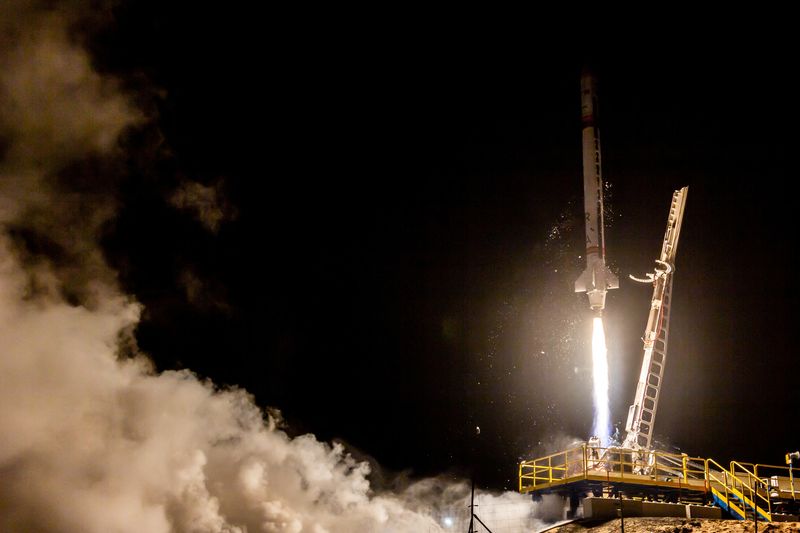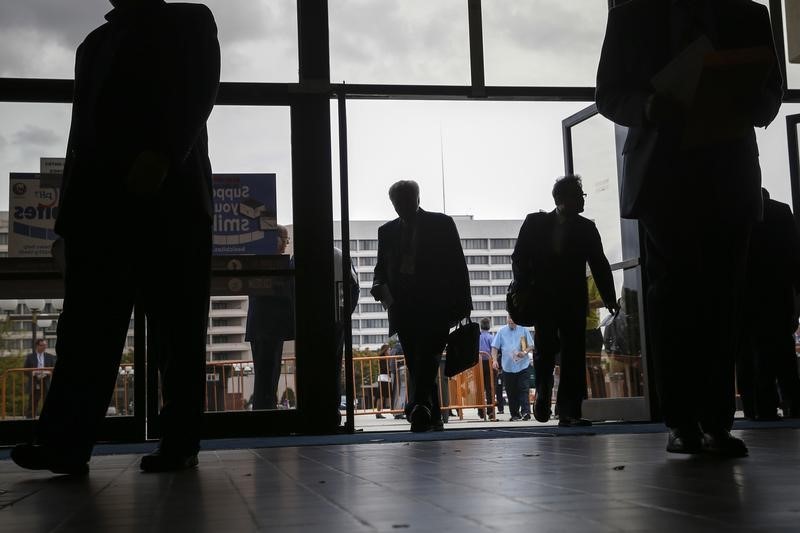By Graham Keeley and Tim Hepher
MADRID (Reuters) -Spanish company PLD Space launched its recoverable Miura-1 rocket early on Saturday from a site in southwest Spain, carrying out Europe's first fully private rocket launch in a glimmer of hope for the region's stalled space ambitions.
The startup's test night-time launch from Huelva came after two previous attempts were scrubbed. The Miura-1 rocket, named after a breed of fighting bull, is as tall as a three-storey building and has a 100-kg (220-pound) cargo capacity.
The launch carried a payload to gather data, but this was not designed to be released during the suborbital test flight.
Mission control video showed engineers cheering and congratulating one another as the rocket rose into the night sky.
"My voice is shot after so much shouting," said a triumphant Raul Torres, CEO of PLD Space, shortly after the launch.
He said all rocket systems worked "perfectly", adding that the company would now focus on tripling its workforce. "This is just the beginning."
Spain's acting Prime Minister Pedro Sanchez posted on social media: "The launch of the Miura 1, the first rocket with 100% Spanish technology, has been a success. A milestone that positions Spain's research and development at the forefront of space transportation."
The flight lasted 306 seconds. However, its maximum height of 46 kilometres was barely half the altitude its mission planners had hoped for, according to space.com.
The partly reusable launcher landed in the Atlantic Ocean and the company was due to recover it later on Saturday, it said in a statement.
A first attempt to launch the Miura-1 rocket in May was abandoned because of high-altitude winds. A second attempt in June failed when umbilical cables did not all detach on time, halting the lift-off as smoke and flames spewed from the rocket.
LAUNCH GAP
Europe's efforts to develop capabilities to send small satellites into space are in focus after a failed orbital rocket launch by Virgin Orbit from Britain in January. That system involved releasing the launcher from a converted Boeing (NYSE:BA) 747.
Saturday's mission on the Miura-1 demonstrator was the first of two scheduled suborbital missions. However, analysts say the most critical test will be the development of full orbital services on the larger Miura-5, planned for 2025.
PLD Space faces competition from rivals in Germany, France or the UK for orbital flights from sites in Scandinavia and Scotland, including Rocket Factory Augsburg and Isar Aerospace.
Saturday's small rocket launch took place under the shadow of disruption to Europe's mainstream space launch activities.
In July, the last launch of Europe's largest rocket, the premier Ariane 5 space launcher, took place at the European spaceport in Kourou, French Guiana.
Europe has until recently depended on Ariane 5 and its 11-tonne-plus capacity for heavy missions, as well as Russia's Soyuz launcher for medium payloads and Italy's Vega, which is also launched from Kourou, for small ones.
The end of Ariane 5 has left Europe with virtually no autonomous access to space until its successor, Ariane 6, is launched.
Russia halted access to Soyuz in response to European sanctions over the invasion of Ukraine, the upgraded Vega-C has been grounded for technical reasons, and Ariane 6 is delayed until next year.

The European Space Agency said last week that Vega-C would not return to service until the fourth quarter of 2024, following a failed mission last December.
Operators said the penultimate launch of the earlier version of the Vega rocket from Kourou had to be scrubbed late on Friday and that would there would be a fresh attempt late on Saturday.
